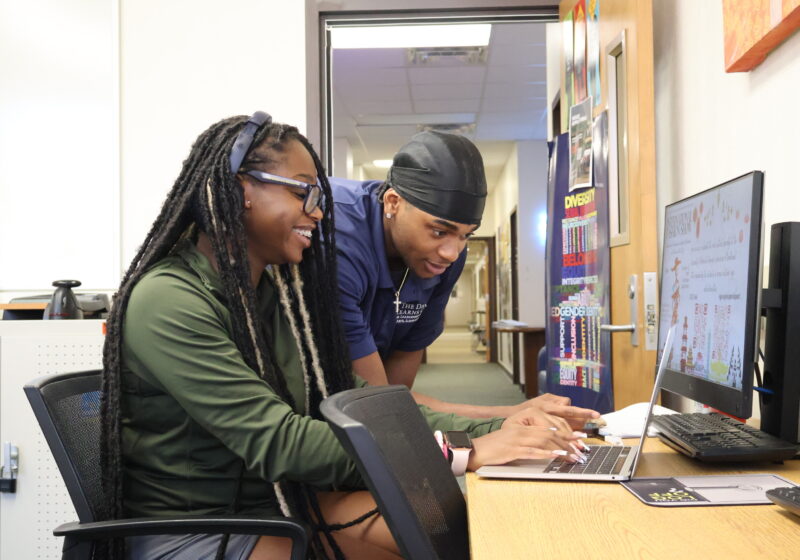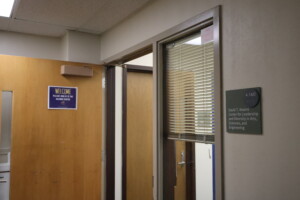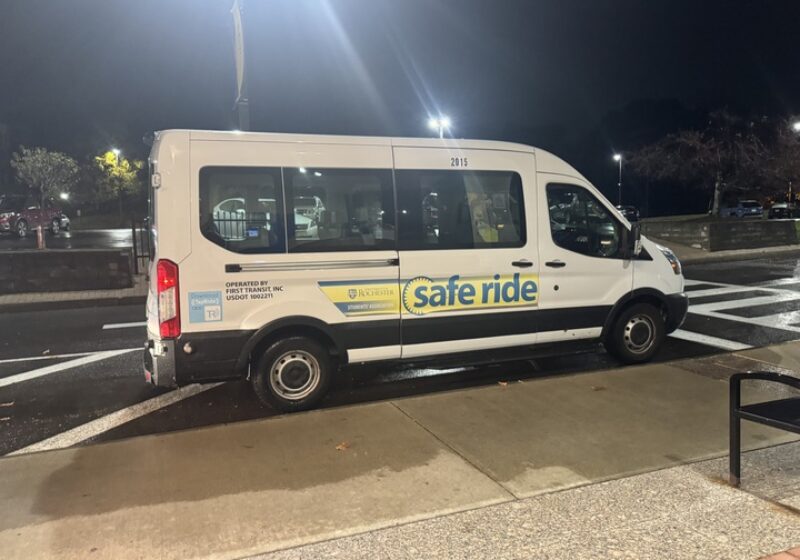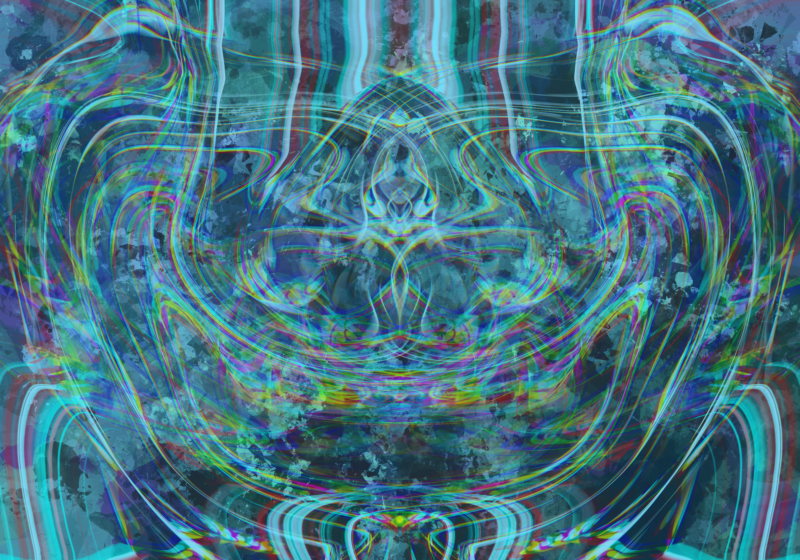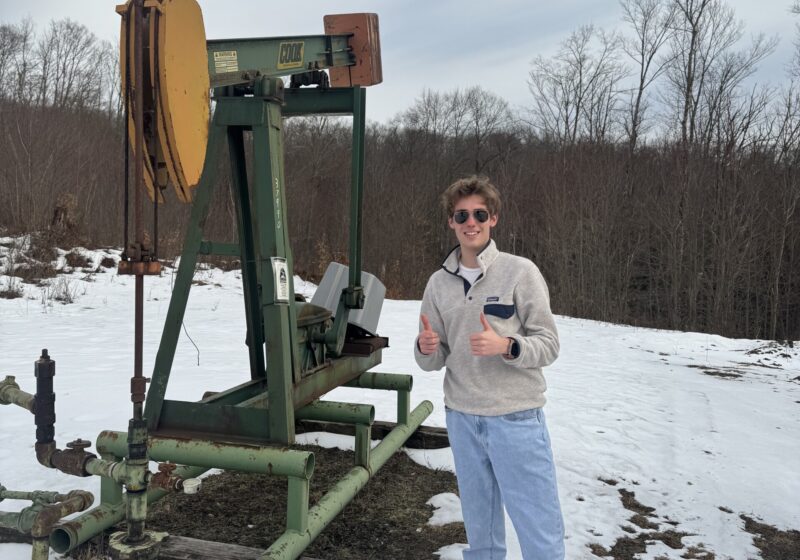The David T. Kearns Center, located in Dewey Hall, is a support network for first-generation and low-income students to learn about the different resources available to them and provide a safe space on campus for the scholars.
“The main mission and goal of the center is to really support students of color, minority students, and first-generation students who ultimately come onto campus and don’t have the resources [they need] available to them,” Yarleny Andeliz, an academic coach and advisor at Kearns, explained. “We really just want to support them in whatever goals and endeavors they want to pursue here in their undergraduate career.”
The Kearns undergraduate programs include the Kearns Scholars, Student Support Services (SSS), and Ronald E. McNair programs. They also provide pre-college programming such as Upward Bound for local Rochester-area high schoolers and graduate school programs.
The Kearns staff, a team of over 20 full-time employees, aim to increase the retention rates for low-income and first-gen students, which historically are lower than other populations.
“Our biggest thing is to increase the number of those students that do actually end up graduating from the University. We see a lot of students that come in, but ultimately, the [graduation] numbers are low, and our goal is to really make sure that the students feel supported, that they have the guidance that they need to be able to finish and get that four-year degree,” said Andeliz.
Rajat Shukla, a Simon Business School master’s student, helps the Kearns Center with behind-the-scenes software and data issues.
To provide this guidance, Kearns advisors use an individualized, holistic approach. Students are free to discuss their academics and career goals as well as their mental, emotional, and physical health.
Austin Okoase ’26, a Kearns Scholar since freshman year and Kearns Program Assistant, described the advisors’ welcoming spirit and approachability with the students.
“You can tell when someone genuinely cares about their job and helping you,” Okoase said. “It’s a deeper connection that’s formed. I genuinely like working here because I can just talk to them like regular people.”
The David T. Kearns Center is located on the fourth floor of Dewey Hall.
Andeliz, an academic advisor and alumna of the program, has experienced both sides of the unique Kearns advisor-student relationship.
“I felt very comfortable when I was a student coming into this office. It was a very home-feeling safe space, and I felt like I had a community to support me. […] And that’s not something that’s easy to find, especially [at] a [predominantly-white institution] as a person of color,” Andeliz said.
Now, she aims to provide the same safe space with her scholars.
“I always check in with my students to see, like, ‘Hey, how are you feeling; how’s today going for you?’ Academics is academics,” she said, “but what really matters is how the student is doing, which is why we think the holistic advising approach is really important. Because everything impacts your academics and your experience here at the University.”

Although the Kearns Center is specifically targeted towards first-generation students, staff encourage any UR student to stop by the center and talk to the advisors.
Although the Kearns Center is specifically targeted towards first-generation students, staff encourage any UR student to stop by the center and talk to the advisors.
The McNair program, one of the Kearns undergraduate programs, is targeted towards juniors and seniors hoping to pursue a doctorate and provides them with research experience and guidance through their graduate school applications. Through the program, senior Rosebell Onuma stayed in Rochester over the summer to complete research that she described as “life changing.”
“To find a mentor, they helped me figure out how to draft the language, who to reach out to, [and] before you know it, I’m working at the microbiology immunology lab,” she said.

Although there’s no official mentorship program at the Kearns Center, upperclassmen tend to provide support and advice for younger students. “A lot of seniors did take it upon themselves to be a mentor or big brother, big sister to a lot of freshmen. And a lot of them still do it to this day,” said Austin Okoase.
Although there’s no official mentorship program at the Kearns Center, upperclassmen tend to provide support and advice for younger students. “A lot of seniors did take it upon themselves to be a mentor or big brother, big sister to a lot of freshmen. And a lot of them still do it to this day,” said Austin Okoase.
Now an environmental health major, Onuma initially entered UR as undecided but was able to pinpoint her interests with the help of Kearns advisors.
“Having that love and having that passion and actually figuring out some sort of way to express it was something I was struggling with a lot. Like, am I being too idealistic? Is this concept I’m even thinking about real? Am I just making stuff up right now? And Kearns was like, ‘No, we can find a way to do it. We see you, we understand you. We can’t tell you how to do it, but we can help you work it out.’ And that’s what they did,” she said.
Rosebell Onuma, pictured, works on her laptop in the computer lab at Kearns. “Ultimately, [the Kearns Center] really strives to empower – at least, I feel empowered by them,” Rosbell Onuma said. “They want to see you successful.”
A required component of the Kearns program is the CASC-145 class called “Navigating the Academy,” a one-credit class for first-generation students. The class, taught by Kearns staff members Jazmin Dunham and Jessica McCane, is essentially about “how to be a college student” and how to take care of yourself, McCane said.
“The class gets everyone introduced to each other [and] helps them learn more about the Center while also learning about all that [UR] has to offer,” said McCane. “Because first-years are typically the students who take the class and it’s kind of hard to build that sense of community right away, [the class] is kind of just a way to help everyone adapt to what it is to be a college student, especially at a pretty intense university like [UR].”
Each week of the class focuses on a different topic, such as mental health, imposter syndrome, or how to get more involved on campus.
The Kearns Center offers free printing and textbook lending to all of its students.
When Onuma began the class in her freshman year, she was at first doubtful of its value but soon became a staunch supporter.
“I was like, ‘I’m taking a class because I’m first-gen; this doesn’t make any sense.’ But then when you get into it, and you meet the people, you see that it’s not even about the class… it’s about making sure that you know you have the resources available to you if you want,” she said.
Okoase, who also took the class in his freshman year, said that through the class, he learned about content that might be considered “basic knowledge” for students whose family has gone to college but is often completely unknown for first-gen students.
“For a lot of first-generation students such as myself who don’t have someone to have this prior information from, it provides that gap that you’re missing,” he said. “It also makes you feel like you’re not alone, too. A lot of times, you feel like you’re the only one going through a certain situation, but when you come to class, you’re able to resonate with so many different people. Because at the end of the day, a lot of people are going through the same things you’re going through, just not a lot of people are as vocal as they could be.”

As a Kearns Program Assistant, Austin Okoase helps to plan, market, and facilitate events. “[Being both a student and a team member] puts me in an interesting perspective because I see what goes into the planning to help the first-generation students, and [for] me as a first-generation student, it feels good to know I’m being helped in this manner. It doesn’t feel like I’m an outcast; it actually increases my sense of belonging on campus,” Okoase said.
Kearns Scholars say that they feel a community with each other that they can’t find anywhere else on campus.
“It feels like home. It feels like a safe spot for me on campus. I’m partially first-gen, low-income, [and] I feel like there’s no one here who judges me for that. There’s more of an understanding of my situation,” Onuma said. “And they have snacks!”
